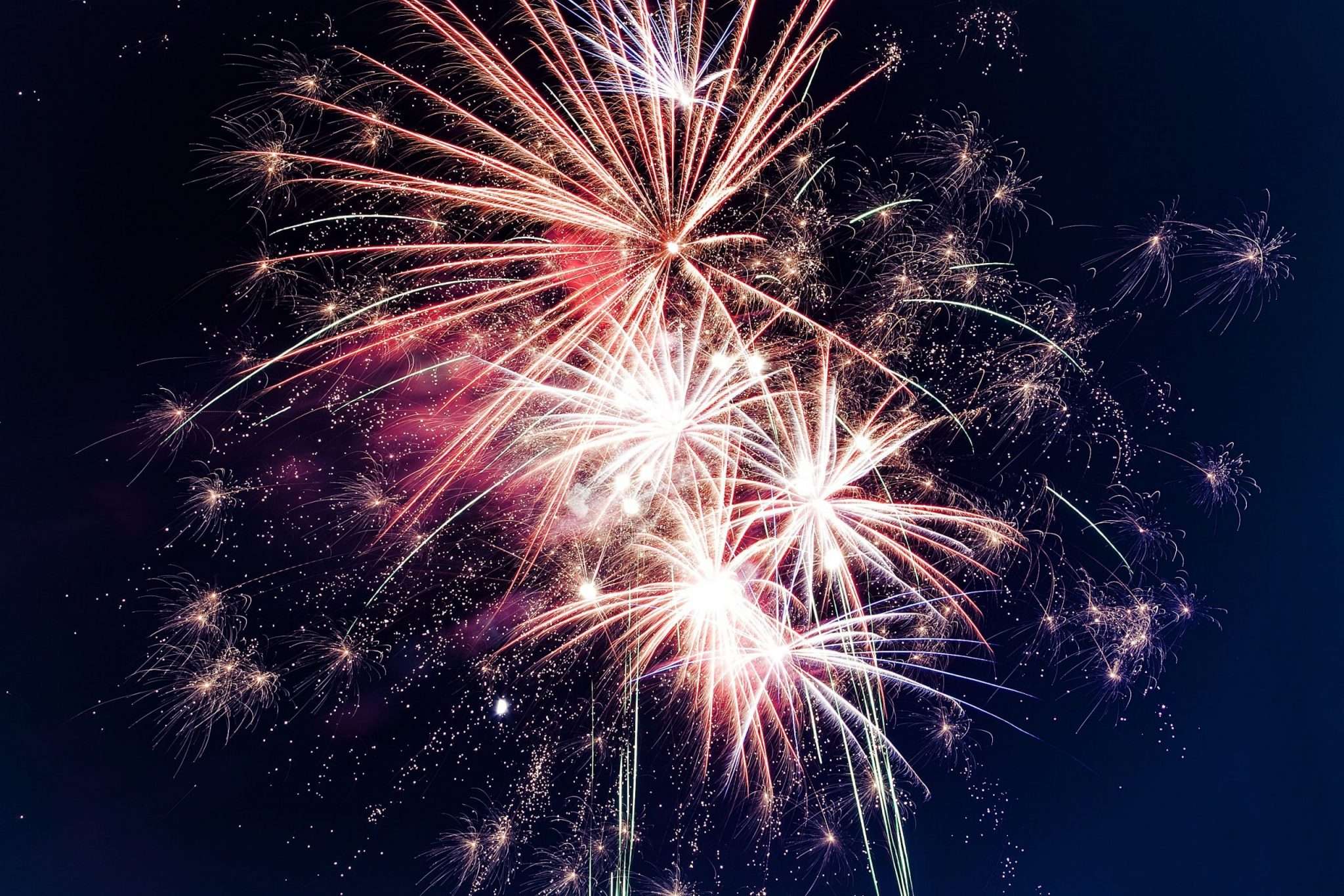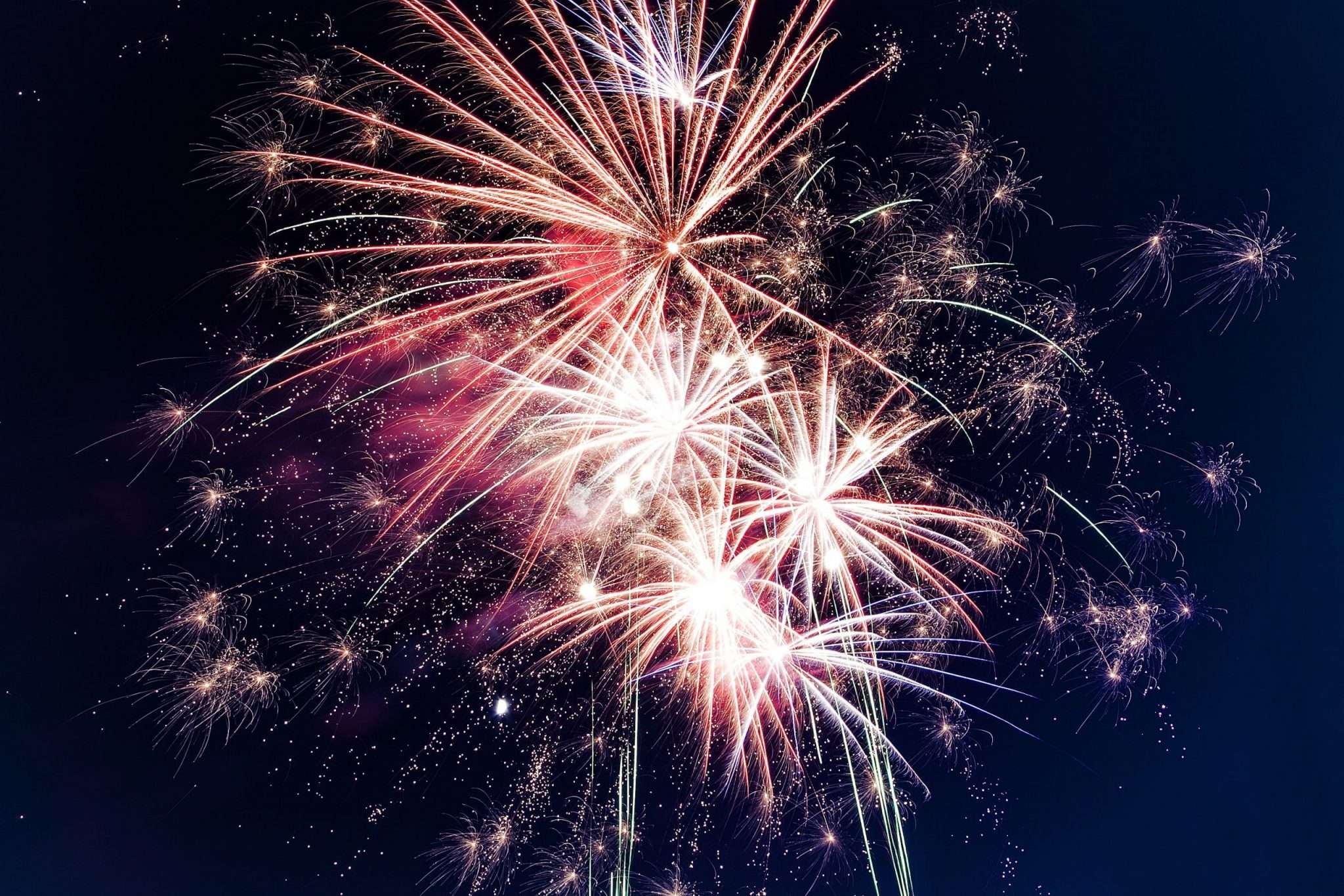 For many people fireworks are the highlight of the July 4th holiday weekend. However, fireworks also have their risks and one danger cannot be seen: hearing loss. Sound intensity (in this case noise) is measured in decibels (dB) and typically any sound above 85 dB is considered harmful. Most fireworks produce sounds that are over 125 dB and therefore come with the risk of damaging your hearing.
The inner ear is the part of the ear that gets damaged the most when we expose ourselves to loud noises. It consists of tens of thousands of tiny nerve cells, also called "hair cells", that pick up sound vibrations and transform them into information that the brain can understand. A sensory overload if these vibrating hair cells, can cause noise-induced hearing loss or tinnitus (ringing or buzzing in your ears).
On July 4th, children are at a particularly high risk of harmful noise-induced hearing loss and you should therefore take extra care to protect their hearing. Here are a few tips:
For many people fireworks are the highlight of the July 4th holiday weekend. However, fireworks also have their risks and one danger cannot be seen: hearing loss. Sound intensity (in this case noise) is measured in decibels (dB) and typically any sound above 85 dB is considered harmful. Most fireworks produce sounds that are over 125 dB and therefore come with the risk of damaging your hearing.
The inner ear is the part of the ear that gets damaged the most when we expose ourselves to loud noises. It consists of tens of thousands of tiny nerve cells, also called "hair cells", that pick up sound vibrations and transform them into information that the brain can understand. A sensory overload if these vibrating hair cells, can cause noise-induced hearing loss or tinnitus (ringing or buzzing in your ears).
On July 4th, children are at a particularly high risk of harmful noise-induced hearing loss and you should therefore take extra care to protect their hearing. Here are a few tips:
Get $200 off a pair of Omni 2 hearing aids with code EARTHDAY200
 For many people fireworks are the highlight of the July 4th holiday weekend. However, fireworks also have their risks and one danger cannot be seen: hearing loss. Sound intensity (in this case noise) is measured in decibels (dB) and typically any sound above 85 dB is considered harmful. Most fireworks produce sounds that are over 125 dB and therefore come with the risk of damaging your hearing.
The inner ear is the part of the ear that gets damaged the most when we expose ourselves to loud noises. It consists of tens of thousands of tiny nerve cells, also called "hair cells", that pick up sound vibrations and transform them into information that the brain can understand. A sensory overload if these vibrating hair cells, can cause noise-induced hearing loss or tinnitus (ringing or buzzing in your ears).
On July 4th, children are at a particularly high risk of harmful noise-induced hearing loss and you should therefore take extra care to protect their hearing. Here are a few tips:
For many people fireworks are the highlight of the July 4th holiday weekend. However, fireworks also have their risks and one danger cannot be seen: hearing loss. Sound intensity (in this case noise) is measured in decibels (dB) and typically any sound above 85 dB is considered harmful. Most fireworks produce sounds that are over 125 dB and therefore come with the risk of damaging your hearing.
The inner ear is the part of the ear that gets damaged the most when we expose ourselves to loud noises. It consists of tens of thousands of tiny nerve cells, also called "hair cells", that pick up sound vibrations and transform them into information that the brain can understand. A sensory overload if these vibrating hair cells, can cause noise-induced hearing loss or tinnitus (ringing or buzzing in your ears).
On July 4th, children are at a particularly high risk of harmful noise-induced hearing loss and you should therefore take extra care to protect their hearing. Here are a few tips:




